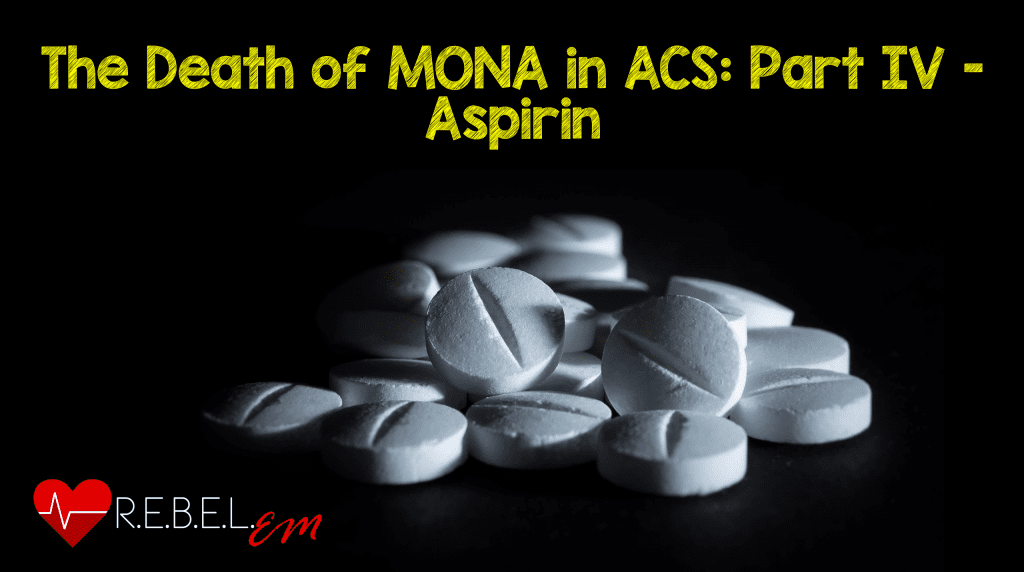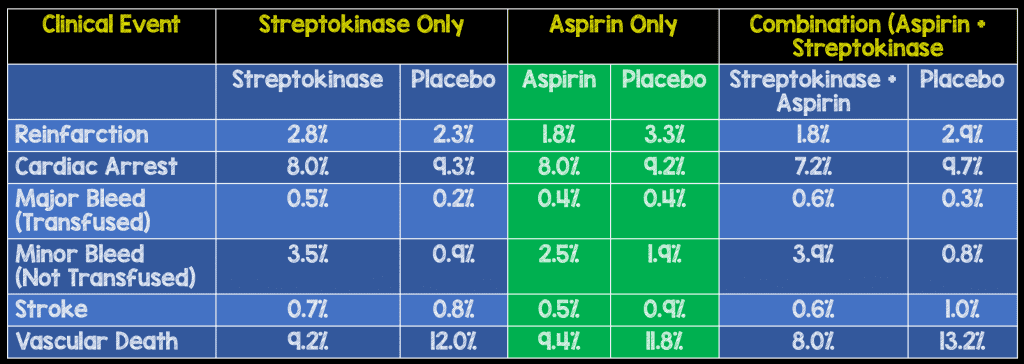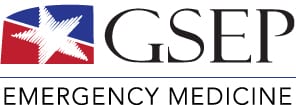 Background: Aspirin is the most widely used antiplatelet agent in acute coronary syndromes. The bulk of the evidence for this came from the second international study of infarct survival (ISIS-2) published in the Lancet in 1988.
Background: Aspirin is the most widely used antiplatelet agent in acute coronary syndromes. The bulk of the evidence for this came from the second international study of infarct survival (ISIS-2) published in the Lancet in 1988.
The last AHA/ACC guidelines for the management of patients with Non-ST-Elevation Acute Coronary Syndromes was published in 2014 [3]. The strength of recommendations for aspirin use are listed below:

ISIS-2 1988 [2]
What They Did:
- The Second International Study of Infarct Survival (ISIS-2)
- RCT of 17,187 patients from 16 counties from 417 hospitals
- IV streptokinase vs placebo
- Oral aspirin (162.5mg in enteric coated tablets) vs placebo
Outcomes:
- Effect of IV streptokinase on vascular mortality
- Effect of oral aspirin on vascular mortality
Inclusion:
- Within 24 hours of onset of symptoms of suspected MI
- No contraindications to streptokinase or aspirin
Results:
- >17,000 patients randomized

Aspirin Only Arm:
- NNT to Prevent:
- Reinfarction: 67
- Cardiac Arrest: 83
- Stroke: 250
- Vascular Death: 42
- NNH to Cause:
- Major Bleed (Transfused): No Difference
- Minor Bleed (Not Transfused): 167
Strengths:
- Largest trial to date evaluating the effectiveness of Aspirin
- Randomized Placebo Controlled Trial
- Follow up was 99% up to discharge and 97% up to week 5 of follow up
- All deaths reviewed blinded to treatment allocation by trial coordinator
- >90% compliance in all arms of intervention and placebo groups
Limitations:
- Unclear if patients entered into this trial were having MI as the lone criteria was EKGs showing STEMI without other confirmatory tests
- Follow up after discharge involved only mortality, but there may be other outcomes that are also patient-oriented
- 206 patients in the streptokinase arm and 206 patients in the aspirin arm did not have discharge forms filled out and not included in the follow up period
Author Conclusion: “Although further research may eventually identify some fibrinolytic or antithrombotic regimes more effective than those tested in ISIS-2, streptokinase and aspirin are practicable, and are of demonstrated value and safety. If both are used widely then they should avoid several tens of thousands of deaths each year.”
Clinical Take Home Point: Aspirin at a dose of 162 – 324mg, provides protection against cardiovascular events (reinfarction, cardiac arrest, and stroke) as well as reduce all cause mortality
References:
- Antithrombotic Trialists’ Collaboration. Collaborative Meta-Analysis of Randomised Trials of Antiplatelet Therapy for Prevention of Death, Myocardial Infarction, and Stroke in High Risk Patients. BMJ 2002. PMID: 11786451
- Randomised Trial of Intravenous Streptokinase, Oral Aspirin, Both, or neither Among 17,187 Cases of Suspected Acute myocardial Infarction: ISIS-2. ISIS-2 (Second International Study of Infarct Survival) Collaborative Group. Lancet 1988. PMID: 2899772
- Amsterdam EA et al. 2014 AHA/ACC Guideline for the Management of Patients with Non-ST-Elevation Acute Coronary Syndromes: A Report of the American college of Cardiology/American Heart Association Task Force on Practice Guidelines. J Am coll Cardiol 2014. PMID: 25260718
- DiNicolantonio JJ et al. Optimal Aspirin Dose in Acute Coronary Syndromes: An Emerging Consensus. Future Cardiol 2014. PMID: 24762255
Post Peer Reviewed By: Anand Swaminathan (Twitter: @EMSwami)



